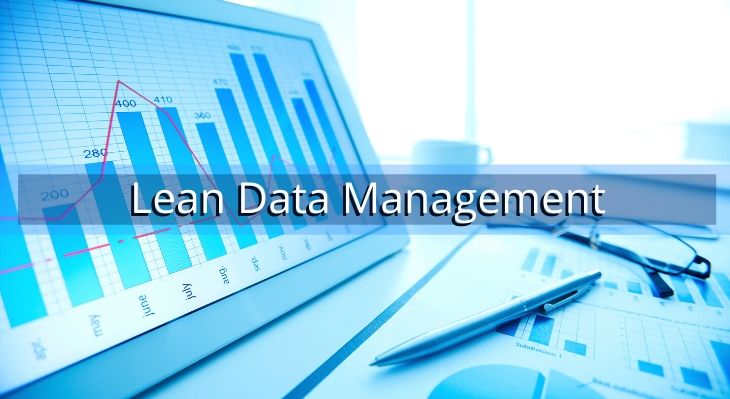Quality data is mainly responsible for pushing business towards the exploration of an ample amount of opportunities around it by helping them optimize the present operational activities and helping understand customers better.
Many times the data that is updated in ERP is not a quality data since it’s not properly verified. Thus it becomes a liability for every type of business at the end.
Lean Data management is the process mainly focusing on collecting high-quality data through lean data management tools which helps in making both informative decisions as well as capacity building decisions for any organization.
Merely having data available is of no use for any organization until and unless it is in reference to initial inquiries that a particular data could relate to. The main reason behind this is to add value.
Such questions that draw an answer which benefits the process of organizations is a value-added question. If it’s the value-adding the question, then there will be a lot of changes regarding how an organization will perform in the nearby future.
The majority of the data that is uploaded in ERP systems is not verified or is just vague. The reason behind that is easily available data nowadays and lacking in maintaining quality data.
Accurate Data limits the high occurring costs in organizations. Instead of uploading or gathering every data, the focus needs to be shifted to collect only the data that is needed to complete goals.
These tasks include the removal of unwanted data in systems and also the tools that are no longer needed for collecting data or the questions that are no longer needed to acquire data.
It’s very obvious that the tools that might have been approved at an initial stage of business might show their incompetency while the business grows.
This results in increased costs for the company and ultimately compromising the quality of the product or services reaching the customer.
To counter this issue it becomes mandatory to be assured about the quality within the organization.
The concept point to the need for automation of the tasks that are prone to human errors repeatedly so that the majority of the time of the organization is invested in creating value for customers.
The main focus here for any organization should be to reduce their expenses on platforms and data storage. Many a time it happens that when we update any data on cloud platform a certain amount is charged for it on its maintenance.
But according to the lean management principle, only that data should be shifted to a platform that is very much into the interest of the organization.
This in turn helps the company in curbing the cost burdens and it also suggests the organizations to shop only for the less expensive options.
The main idea behind lean management is to improve the organization in a better way and it will happen better with the continuous incoming of the customers which completely depends on the delivery speed of the organizations.
The sooner the product is delivered to customers the sooner organizations would be able to evaluate the responses of the customer and thus keeping the management a step ahead in improvements.
The main concept behind this lean principle is to compel organizations to provide an architect for the documentation and retaining of learnings that an organization has done so far.
This principle at first glance might seem an easy task but its implementations have to be very focused as well as disciplined.
This principle of lean management asks the organizations to continuously measure the investments they made in accordance with data and the values they have been able to derive from it.
The simple concept behind this principle of lean management is to shift the focus of the organization towards the ROI too.
Instead of looking for every type of data, it would be better for an organization that focuses only on the particular sets of data that are important for any organization.
With the help of lean data management majority of the time and efforts could be saved and the efficiency of the organization thus skyrockets
It will surely be in the better aspects of the business if a particular organization is saving its time by analyzing the lean data.
By using the lean data the organization is now into the position of making quick decisions by only focusing and working on clear and filtered data.
While applying the lean management for data it surely will help the organization in reducing the errors as the organization is only collecting the lean data and thus working and updating the same.
This principle focuses on refining the data that is useful for organization, it helps to reduce the errors as organizations use only useful and updated data.
Conclusion
Data is needed to execute certain decisions but not every time the data organizations work upon is accurate which often leads to financial liability for most of the organizations.
Lean data management saves time as well as money and helps the organizations to be prepared for future decisions with accurate data.
You may also like to Read:
What is the Importance of Data Management in different Organizations?

